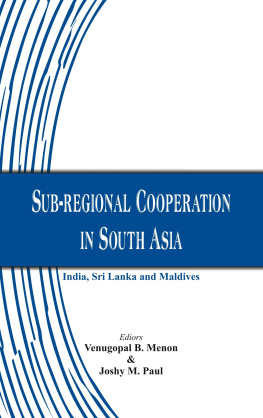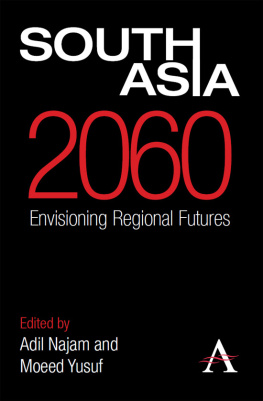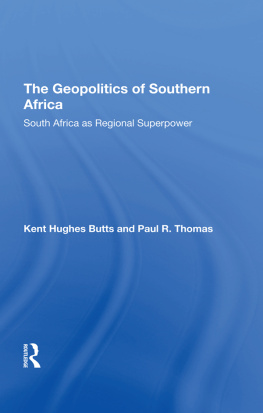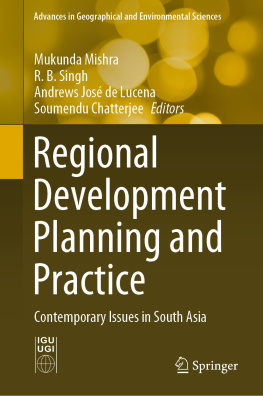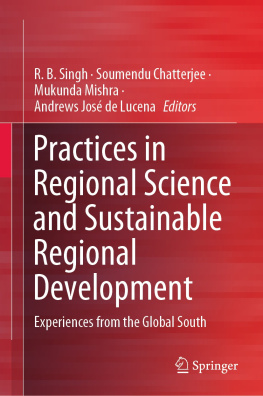Triumph of the South
Modern Economic and Social History Series
General Editor: Derek H. Aldcroft
Titles in this series include:
Governance, Growth and Global Leadership
The Role of the State in Technological Progress, 17502000
Espen Moe
Rethinking Nineteenth-Century Liberalism
Richard Cobden Bicentenary Essays
Edited by Anthony Howe and Simon Morgan
Alfred Herbert Ltd and the British Machine Tool Industry, 1887-1983
Roger Lloyd-Jones and M.J. Lewis
Taste, Trade and Technology
The Development of the International Meat Industry since 1840
Richard Perren
The Popularization of Malthus in Early Nineteenth-Century England Martineau, Cobbett and the Pauper Press
James P. Huzel
Europes Third World
The European Periphery in the Interwar Years
Derek H. Aldcroft
Industrial Reorganization and Government Policy in Interwar Britain
Julian Greaves
The Hidden Cost of Economic Development
The Biological Standard of Living in Antebellum Pennsylvania
Timothy Cuff
Demons of Domesticity
Women and the English Gas Industry, 18891939
Anne Clendinning
Britain and the Economic Problem of the Cold War
The Political Economy and the Economic Impact of the British Defence Effort, 1945-1955
Till Geiger
First published 2007 by Ashgate Publishing
Reissued 2018 by Routledge
2 Park Square, Milton Park, Abingdon, Oxon OX14 4RN
711 Third Avenue, New York, NY 10017, USA
Routledge is an imprint of the Taylor & Francis Group, an informa business
Peter Scott 2007
Peter Scott has asserted his moral right under the Copyright, Designs and Patents Act, 1988, to be identified as the author of this work.
All rights reserved. No part of this book may be reprinted or reproduced or utilised in any form or by any electronic, mechanical, or other means, now known or hereafter invented, including photocopying and recording, or in any information storage or retrieval system, without permission in writing from the publishers.
A Library of Congress record exists under LC control number: 2006005223
Notice:
Product or corporate names may be trademarks or registered trademarks, and are used only for identification and explanation without intent to infringe.
Publishers Note
The publisher has gone to great lengths to ensure the quality of this reprint but points out that some imperfections in the original copies may be apparent.
Disclaimer
The publisher has made every effort to trace copyright holders and welcomes correspondence from those they have been unable to contact.
ISBN 13: 978-0-815-39862-2 (hbk)
ISBN 13: 978-1-351-14404-9 (ebk)
Economic and social history has been a flourishing subject of scholarly study during recent decades. Not only has the volume of literature increased enormously but the range of interest in time, space and subject matter has broadened considerably so that today there are many sub-branches of the subject which have developed considerable status in their own right.
One of the aims of this series is to encourage the publication of scholarly monographs on any aspect of modern economic and social history. The geographical coverage is world-wide and contributions on the non-British themes will be especially welcome. While emphasis will be placed on works embodying original research, it is also intended that the series should provide the opportunity to publish studies of a more general thematic nature which offer a reappraisal or critical analysis of major issues of debate.
Derek H. Aldcroft
University of Leicester
This study has a long lineage. My interest in regional development began during the latter stages of my Ph.D. research on the evolution of the British commercial property sector. My supervisor, Charles Feinstein, gave me tremendous encouragement and help regarding both the thesis and this post-doctoral project. Following completion of my thesis I was fortunate to be able to commence research on interwar industrial development on a full-time basis for one year, thanks to a Junior Research Fellowship at Pembroke College, Oxford. The Department of Economics, University of Portsmouth, where I lectured in economic history from 19932001, were also generous in providing me with time and resources to continue my research and my current employer, the Department of Management, University of Reading, has been similarly generous. I would particularly like to thank my colleagues at the University of Readings Centre for International Business History, for their continuing encouragement and support.
A Nuffield Foundation Social Science Small Grants Scheme award allowed Peter Walsh and myself to complete our research on new plant formation in interwar Britain, discussed in , while research funded by ESRC awards on technical change in the British coal industry and on interwar suburban housing also inform the analysis at various points. Particular thanks are due to the Arts and Humanities Research Council, for granting me a Research Leave Scheme Award to finally complete this book.
I am indebted to many people for help with this project over the years. Some of the themes were first explored in journal articles and I am grateful to the editors, people who read and commented on early drafts, and several anonymous referees, for their very valuable advice. Peter Walsh and Marian Bartlett provided me with important help regarding the analysis of interwar industrial development patterns. My research with Tim Rooth on early overseas multinationals in Britain also provided valuable information on the factors influencing interwar corporate location decisions. Fabian Panthaki, Peter Cook, and Jon Press provided generous help regarding technical aspects of preparing the text and illustrations.
Archival and other staff at the Age Concern Reminiscence Centre; Bank of England Archive; Bexley Local Studies and Archive Centre; British Library of Political and Economic Science Archives; Coventry Record Office; the Croydon and Watford reference libraries, Gunnersbury Park Museum Archives, John Laing plc; Letchworth Museum; London Metropolitan Archives; Modern Records Centre, Warwick; National Archives; National Provident Institution; Nuffield College Library; Percy Bilton plc; Slough Estates plc; Slough Museum; and Welwyn Garden City Library were also of immense help and assistance.
John Armstrong, Jeremy Burchardt, Tony Corley, Eric Jones, Tim Leunig, Peter Miskell, Lucy Newton, Andrew Popp, and Tim Rooth provided comments on individual draft chapters, which were of great help when it came to revising them. Thanks are also due to Nick Crafts for giving me access to his estimates of pre-1914 regional GDP per capita prior to their publication and to Stephen Ward for allowing me to reproduce two maps. Particular thanks are due to my commissioning editor, Derek Aldcroft for his help, advice, and encouragement, and to the staff at Ashgate. Finally, but very far from least, I would like to thank my partner Fong, to whom this book is dedicated, for her support, patience, and love.
Chapter One
Introduction
A rapidly modernising, regionally-divided, nation
On the eve of the First World War Britain remained, essentially, a nineteenth-century society. Capital was highly concentrated in the hands of the very few, less than one per cent of the population commanding almost two thirds of its total wealth. A large proportion of the population were so malnourished as to be stunted in height, while most people lived in houses that lacked indoor plumbing and were often subject to severe dampness, chronic overcrowding, vermin infestation, or other unsanitary conditions.





